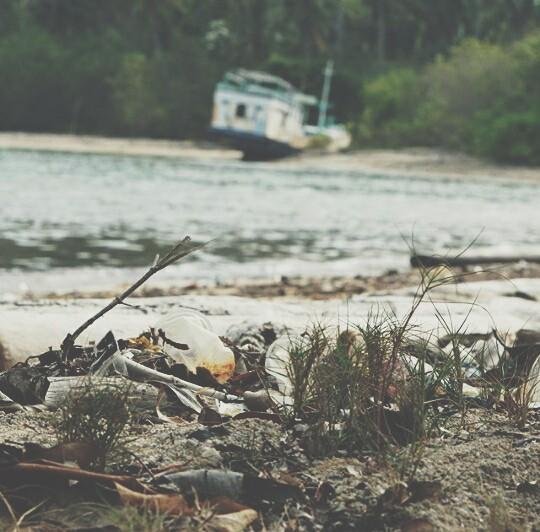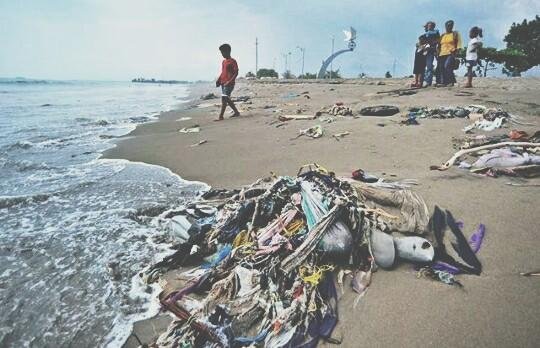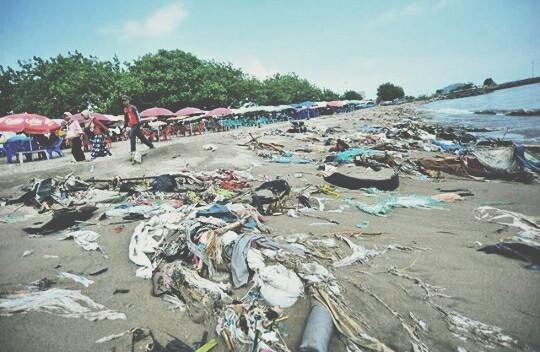story

This pile of plastic waste will be easy to find in various places, including in the channel or stream, starting from the ditch, the watershed to the shoreline, which ultimately empties into the sea. The threat of the existence of plastic waste to the marine biological not only cause various natural disasters such as floods, but also as a destructive material ...! Both destructive natural scenery and marine ecosystem destruction as a whole. Moreover, the presence of plastic waste is estimated to have reached the seabed.
One important fact about plastic that we should be aware of is its non-biodegradable nature. This property affirms the 'efficacy' of plastics as a material that can never be deciphered by organisms in nature. Great?
Well, great again, plastic will only be pieces or small pieces of this nature, even then through a very long process, can even reach thousands of years, depending on the type of plastic itself. That means, even in a very small size, plastic is still plastic! Plastics will remain in the wild forever and capable of causing damage to the environment, not least for marine ecosystems.
Some examples of 'greatness' of this plastic hazard such as the decline in fish populations. Many fish die in the ocean by plastic. Plastics consumed by fish, will not be destroyed and absorbed by the fish body. At the time the fish is dead and rot, the plastic that is in the body, it will go out and back to the sea even consumed again by other fish. We can already guess, what will happen if every day increasing plastic waste and into the sea, uncontrollably? How many fish will die each day from plastic? and whether the fish we consume every day, is not contaminated with the harmful substances contained in the plastic consumed by the fish?
This plastic waste will ultimately affect the food chain cycle at sea. Plankton and Zooplankton like any jellyfish, can not breed well, so it will affect the supply of food for fish in the waters. Similarly, the 'seed' of mangrove. Plastic garbage wrapped around the roots as 'breathing tools' of mangroves, mangrove growth becomes disrupted. In addition to waste in the sea, the waste that is in the river also plays an important role to kill the fish and other aquatic animals that are in the river. This may be just a small sample of most of the dangers of plastic waste.

How much more damage to the marine ecosystem that arises from the accumulation of plastic waste in our waters? If we let plastic waste continue to be 'rampant', then no one can guarantee how fast it will take for plastic waste to ruin the preservation of Indonesia's marine biodiversity, which is a source of livelihood for us and our future generations.
Well ... love the wealth of our waters from now on ya ... !